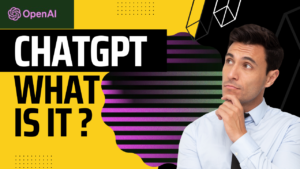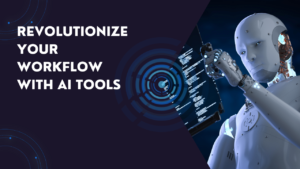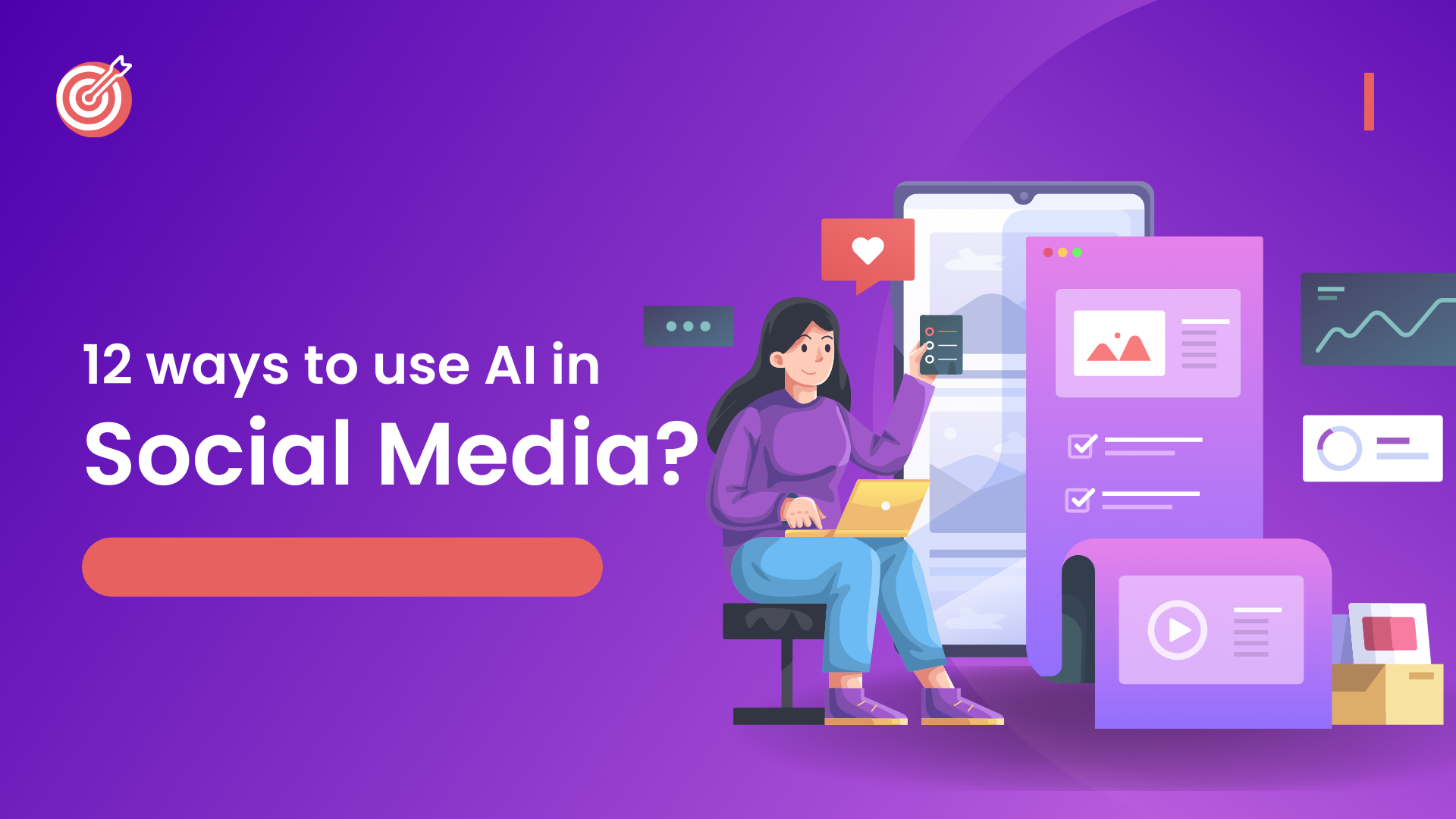
Artificial intelligence AI can be abused by marketers to refine their social media content and campaigns.AI technology is now embedded in major social media platforms, improving features and enabling large-scale optimization of activities.
What is AI in social media?
AI in social media marketing leverages advanced technologies like machine learning and natural language processing to analyze user data and interactions across social platforms.
With these AI tools, marketers can enhance various aspects of their strategy, including content creation, social media monitoring, brand awareness, ad targeting and management, and influencer research. This facilitates data-driven decision-making that refines and optimizes social media strategies. The ultimate goal for social media users is to see their feeds filled with relevant and useful content, including advertisements. AI can achieve this through hyper-personalization, making digital marketing more effective and engaging.
Role of AI in transforming social media marketing
AI has a major impact on media and entertainment, especially in content creation. By processing large volumes of data, AI algorithms can generate content that caters to specific audiences. For example, Netflix employs machine learning to analyze viewing patterns and suggest personalized recommendations to its users.
AI-driven tools can analyze your brand’s social media profiles and audience interactions, offering insights into user behavior and conversations about your brand. This information helps you gauge your global brand value, spot emerging trends, identify new target audiences based on their interests, and find innovative ways to promote your brand on social media.
Social media platforms enable individuals and businesses to connect with specific audiences and run targeted ads based on user behavior and demographics. However, successful advertising isn’t just about having a budget; creativity is key to attracting the right clicks.
AI-based tools can assist in optimizing your ads for better conversions and engagement. They can provide insights into which languages or keywords are most effective for your target audience. Additionally, AI tools can measure your ad campaign’s performance, helping you assess if it’s meeting your goals and making necessary adjustments. They can also forecast market trends, allowing you to refine your advertising strategies, boost your return on investment (ROI), and attract more organic customers.
What are the pros and cons of using AI in social media
Artificial Intelligence (AI) has become a major influence, revolutionizing many areas of society, including social media. AI is changing the way we engage with, share, and process information online, through features like customized content suggestions and chatbots. Yet, these advancements bring both advantages and potential drawbacks that need to be carefully examined.
Pros of AI on social media
1. Better User Experience
AI analyzes user data to learn what people like and how they behave. This helps social media platforms show content that’s tailored to each person, making the experience more engaging and satisfying.
2. Content Moderation:
AI tools can automatically find and remove harmful or inappropriate content. This helps keep the online space safer and protects users, especially kids, from negative content like cyberbullying or hate speech.
3. Customer Support and Chatbots:
Social media platforms use AI chatbots to provide quick customer support. These bots can answer many questions on their own, which speeds up service and allows human staff to focus on more complicated issues.
4. Data Analysis and Insights:
AI examines large amounts of social media data to uncover trends and customer preferences. Marketers use these insights to make better decisions and create effective strategies.
5. Content Creation:
AI can now generate articles, images, and videos, making content creation faster and cheaper. This helps creators by giving them new ideas and saving time and effort.
Cons of AI on social media
1. Privacy Concerns:
AI algorithms depend on user data to offer personalized experiences. This reliance raises issues regarding how data is collected, stored, and utilized. Ensuring robust user privacy and data security remains a significant challenge, demanding stringent regulations and ethical practices.
2. Algorithmic Bias:
The effectiveness of AI algorithms hinges on the quality of their training data. Biased data can lead to algorithms that perpetuate or even intensify existing biases, resulting in discriminatory outcomes. Addressing algorithmic bias is critical to promoting fairness and equality.
3. Misinformation and Deepfakes:
AI technology can generate highly convincing deepfake videos and misleading content, posing substantial risks as misinformation can spread quickly and have severe social and political repercussions. Social media platforms must invest in advanced AI tools to detect and counteract misinformation effectively.
4. Job Displacement:The increasing use of AI-powered automation, such as chatbots and content creation tools, may lead to job losses in fields like customer service and content creation. It is important to focus on re-skilling workers and creating new employment opportunities within the AI industry.
5. Regulatory Challenges:
Regulating AI on social media is challenging due to its fast-evolving nature. Finding a balance between fostering innovation and implementing effective regulations is essential to maintain a healthy digital environment while safeguarding user safety and privacy.
12 Ways to use AI in social media
AI has revolutionized operations on social media platforms and within businesses, enhancing the efficiency and results for both marketers and sales teams. This technology enables them to refine their strategies and achieve improved outcomes.
In this sense, a list of 12 easy ways to use artificial intelligence in social media.
1. Content Recommendations
AI algorithms can analyze user behavior and preferences to suggest relevant content, boosting engagement and retention
2. Automated Customer Service
Chatbots and virtual assistants powered by AI can handle customer inquiries, provide support, and resolve issues in real time.
3. Social Listening and Sentiment Analysis
AI tools can monitor social media platforms to analyze public sentiment and track brand mentions, helping businesses understand customer opinions and trends.
4. Personalized Advertising
AI can target ads to specific audiences based on their behavior, interests, and demographics, increasing the relevance and effectiveness of campaigns.
5. Content Creation
AI can assist in generating content ideas, writing posts, or even creating visual assets, streamlining the content creation process.
6. Image and Video Recognition
AI can identify and tag objects, people, or scenes in images and videos, enhancing searchability and user engagement.
7. Trend Analysis
AI can analyze data to identify emerging trends and popular topics, helping brands stay relevant and engage with current conversations.
8. Influencer Identification
AI can help identify and evaluate potential influencers by analyzing their reach, engagement, and relevance to the brand.
9. Performance Analytics
AI tools can provide in-depth analysis of social media performance metrics, offering insights into what works and what needs improvement.
10. Content Optimization
AI can suggest optimal times for posting and the best formats for content based on engagement patterns and user behavior.
11. Fraud Detection
AI can detect fraudulent activities, such as fake accounts or bot interactions, ensuring the integrity of social media campaigns.
12. A/B Testing
AI can automate and analyze A/B testing for various content strategies, helping to determine which approaches yield the best results.
These AI applications help streamline processes, enhance user experiences, and drive more effective social media strategies.
How Are Social Media Platforms Using AI?
Many leading social media companies have already integrated AI to elevate their services. Managing these platforms is complex, given the vast amounts of content they handle. AI assists by analyzing large data volumes to uncover social media trends, hashtags, and patterns, ultimately enhancing the user experience.
Twitter:
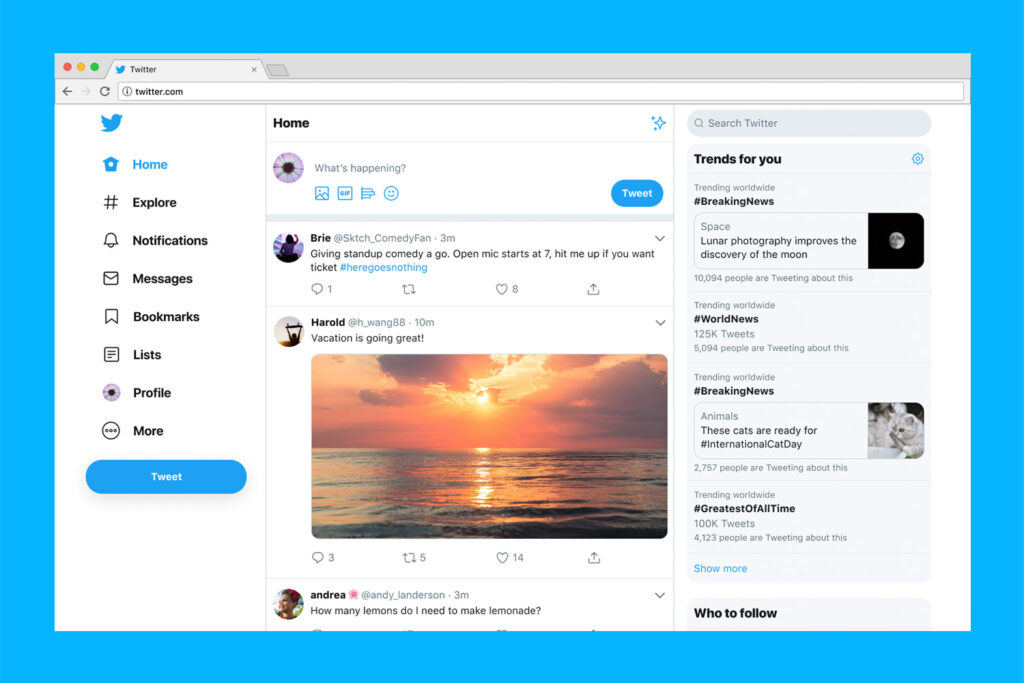
Twitter uses artificial intelligence to categorize every single tweet to provide content people most care about at the top of their feed. Their AI can suggest replies to users while they are commenting on tweets or answering comments, as well as detect fraud propaganda on the platform. Twitter also uses neural network intelligence to crop photos in a way that maximizes the aesthetic output. Twitter AI studies eye tracking to record what part of pictures people look at first to understand which part of a photo is most appealing to users.
Snapchat:
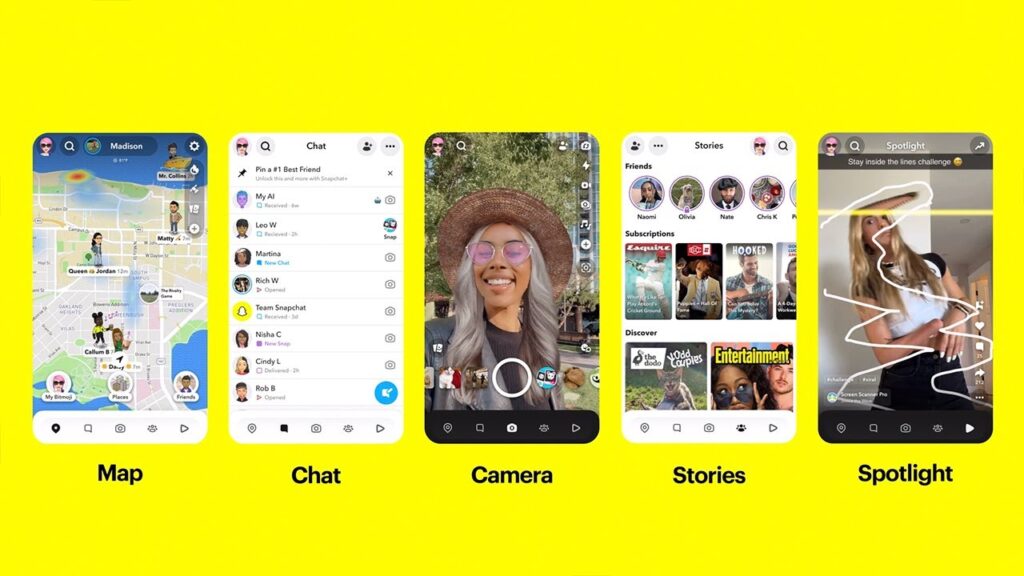
Snapchat uses AI-powered lenses on its filters to detect faces and differentiate structures and features within it. They also benefit from AI to target ads efficiently to users that are most likely interested in them. AI is key to developing marketing strategies that provide valuable insights into trending topics at the moment they are most talked about in the Snapchat community. Marketers and influencers can then use this information to cater content to their audience that is meaningful to them.
Instagram:
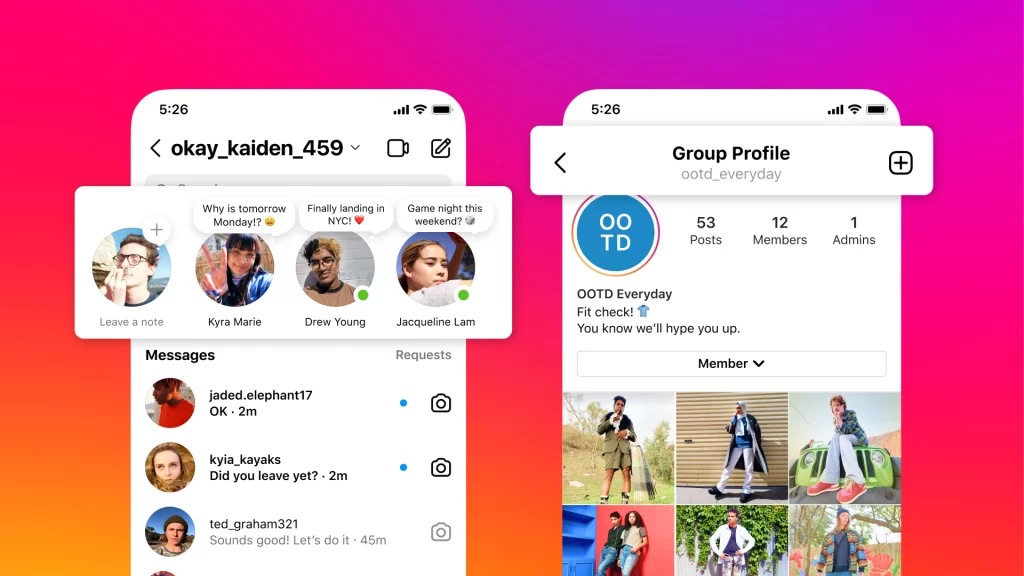
Instagram benefits from AI to customize content for the Explore tab, based on user behavior and interaction data to display accounts that individual users might like. AI helps Instagram bring more user engagement than before and considerably enhances user experience on the platform.
Facebook:
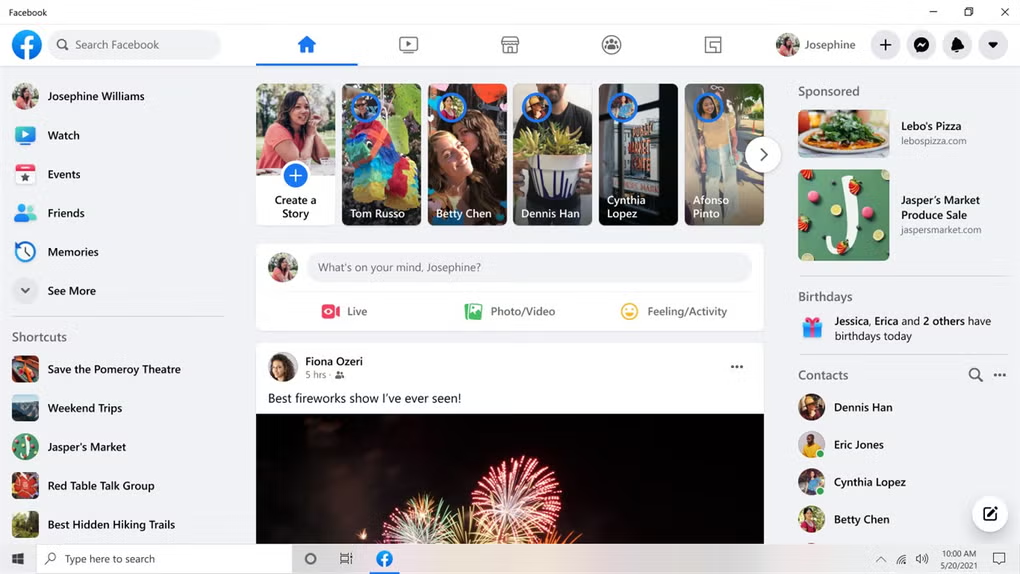
As one of the first platforms to introduce AI in social media, Facebook implemented multiple AI-powered tools to improve user experience. They use AI to suggest people and content to users based on their choices, web preferences, and browsing patterns, as well as help identify visuals, recommend tag options, recognize faces in photos, and various other tasks.
TikTok:
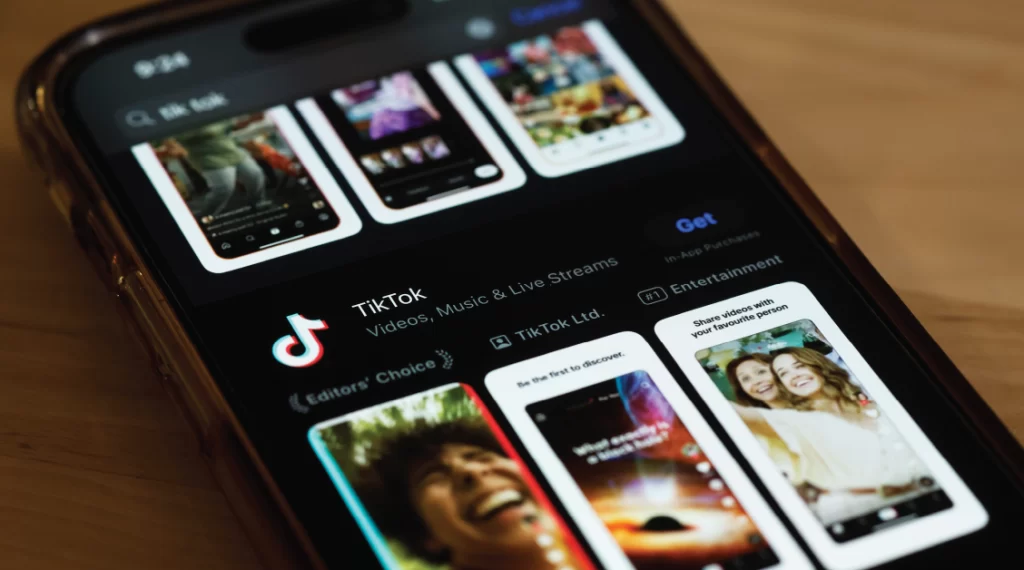
Artificial intelligence now plays an important role in any TikTok marketing strategy. AI-based recommendation algorithms help TikTok reach extreme user engagement. TikTok AI features help brands leverage TikTok for social listening, as TikTok artificial intelligence tracks each and every user’s behavior as they watch recommended videos, as well as mapping personality and highlighting emotion patterns. This platform is able to suggest more content that would fit users’ interests. The addiction that TikTok engenders in users showcases the progress AI has reached in social media platforms.
The future of AI in social media
The future of social media is poised for transformation with new and unprecedented applications. Here’s a snapshot of what to expect:
1. Advanced Predictive Analytics
AI’s capability to process and analyze vast datasets will lead to more accurate predictions of social media trends. This means social media managers and advertisers will have better tools to foresee what content or strategies will be successful, allowing them to create more effective plans. AI could quickly identify emerging topics or changes in user sentiment, offering businesses a strategic advantage.
2. Hyper-Personalized Content
AI will enhance its ability to deliver highly personalized content by analyzing individual user behavior and preferences. This will result in more tailored posts, advertisements, and recommendations, leading to higher engagement and more impactful marketing campaigns.
3. Enhanced Customer Interaction
AI-powered chatbots and virtual assistants will become more advanced, enabling more natural and efficient user interactions. These tools will handle a wider range of queries with greater accuracy, improving customer service and overall user experience on social media platforms.
4. Innovative Content Creation
AI will increasingly contribute to content creation, offering tools to assist in writing posts, generating visuals, or producing videos based on user interests and trending topics. This will streamline content production and enhance creativity.
5. Improved Security and Moderation
AI will play a crucial role in identifying and managing harmful content and misinformation. Enhanced algorithms will enable social media platforms to better detect and address problematic content, contributing to a safer online environment.
Conclusion:
In conclusion, the integration of AI into social media represents a path filled with both significant opportunities and challenges. Moving forward, achieving the full potential of AI requires a careful balance between innovation and ethical considerations. By encouraging collaboration among technologists, policymakers, and users, we can work towards a future where AI enhances human connection, fosters inclusivity, and maintains the integrity of our digital environment. The insights shared highlight the importance of continued vigilance, adaptability, and open dialogue as we traverse the evolving landscape of social media in the era of artificial intelligence.

